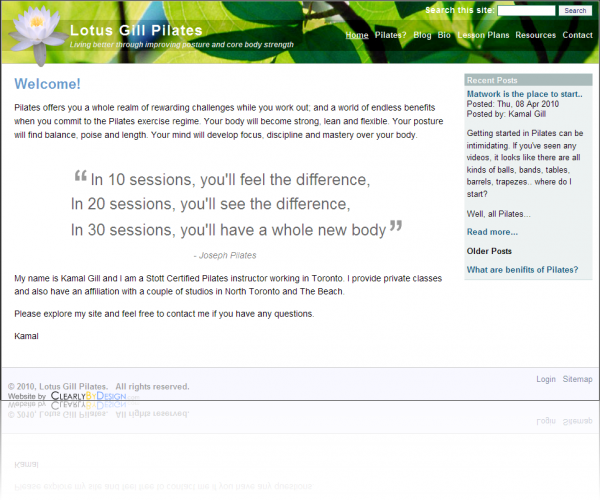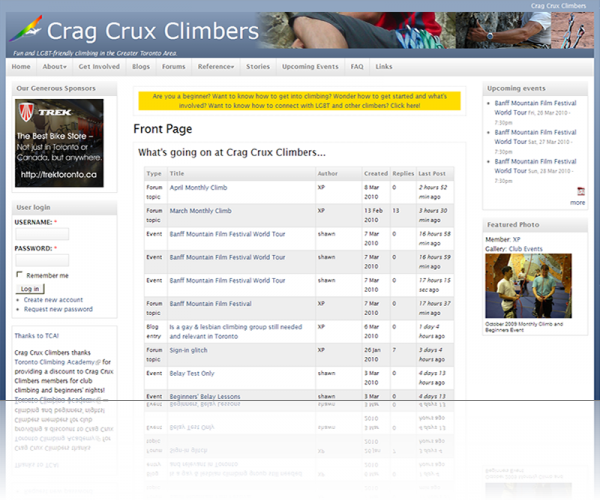Posted Wed, 19 May 2010, 6:24pm by Shawn D. Sheridan
There are a variety of techniques that are viewed dimly by the search engines, as what those techniques are doing is in reality gaming the system as opposed to optimising optimizing for a search engine. In a variety of cases, where the infractions have been aggravating enough, Google and others have black-listed the sites, and they never come up in a search. That includes even searching for the company by name or the site name itself! So, while there are some SEO companies that may claim they can boost your ranking almost magically through their “tried and true” techniques, beware! Any of the following techniques risks having your site floated to the bottom of results lists, or delisted altogether.
- Keyword stuffing involves placing keywords within a page to raise the keyword
count, variety, and density on the page.
This may make a page appear to be relevant to a web crawler in such
a fashion that the page is more likely to be found. Older search engine algorithms merely
counted keywords to determine relevance.
However, most of today’s search engines have algorithms to detect
keyword stuffing.
That said, there is nothing wrong with good use of key words within your content. In fact, you should be writing your content so that it appropriately employs key words and phrases throughout your text. Such use should be natural, and a good copywriter can help you with that. - Hidden text is similar to keyword stuffing, except deliberate techniques
are used to hide the text from the viewer while making it available to search
engines. For example, if your
target market for your product is youth, you could place hidden text on
your web page that related to a popular youth band in the hopes that it will
appear to be a fan site, be listed when your target market searches
for that band, thus luring people to your site. Again, this technique is of questionable
value given modern indexing algorithms.
There are legitimate uses of hidden text, such as increasing accessibility for disabled users, and providing alternate spellings of keywords. We use hidden text on our pages for both of these reasons. - Meta tag stuffing is similar to keyword stuffing as well as using keywords unrelated to your site, using the meta tags such as “keywords” and “description”. This technique has in fact long been ineffective.
- Article spinning is the antithesis of point number one in the previous article, Search Engine Optimisation — What to Do. This is an artificial way of increasing the content on your site by taking previous work, and altering it slightly, or plagiarising from other sites, which may also infringe on another site’s copyright.
- Link spam has a number of different varieties, all designed to boost the
number of links to your website to take advantage of link-based
ranking algorithms. Methods include:
- Link farms, which are collections of highly inter-linked pages.
- Hidden links, placing links where users cannot see them.
- Spam in legitimate websites’ open pages, where highly-ranked websites with public content and/or comment ability, trackbacks, open forums, and other such features are targeted with often nonsensical content in which links are embedded.
- Illegitimate URL redirection, where users are taken from the target page to another page without their intervention. Sometimes this is legitimate, such as when a site has changed its domain name, and wants to let users know before they are redirected to the new domain URL.
- Cloaking, where any of several means are used to serve a web page to the search engine crawler that is different from that seen by human users, attempting to mislead the search engine about the content of the site in question.
- Doorway pages, loaded with keywords somewhere on your site. This practice is in reality ineffective, as individual pages are rarely relevant for a wide range of keywords.
After reading this list, I hope you come away with a sense that not only are these techniques akin to snake-oil sales, but in fact really do not serve anyone — not you as a business hoping to attract customers, and not you as a customer looking for the right product or service. Trying to game the search engines harms everyone in the long run. And any SEO company advocating any of these techniques will not serve you well. In certain situations, devious SEO companies have leveraged these techniques to their own advantage, such as embedding doorway pages with links to their own and other company's sites, hijacking pages, and ghosting sites such that when the relationship with them goes south, your site suddenly points somewhere else.
So stick with the techniques outlined in Search Engine Optimisation — What to Do, and you’ll be much further ahead.
- Shawn D. Sheridan's blog
- Login to post comments
-










